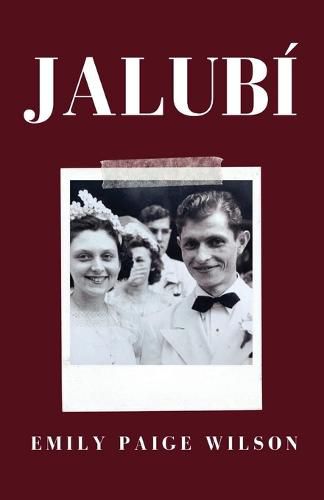Readings Newsletter
Become a Readings Member to make your shopping experience even easier.
Sign in or sign up for free!
You’re not far away from qualifying for FREE standard shipping within Australia
You’ve qualified for FREE standard shipping within Australia
The cart is loading…






This title is printed to order. This book may have been self-published. If so, we cannot guarantee the quality of the content. In the main most books will have gone through the editing process however some may not. We therefore suggest that you be aware of this before ordering this book. If in doubt check either the author or publisher’s details as we are unable to accept any returns unless they are faulty. Please contact us if you have any questions.
In what ways does lineage resemble language, and are there aspects of both which will always feel untranslatable? With Prague as a backdrop, Jalubi explores this question as it attempts to balance on the fraught fulcrum point of what in the speaker’s family history has been accurately preserved and what has been turned into myth by way of intentional and accidental misrepresentations. Set in the shadow of witches, dragons, and a great-grandmother’s ghost, this collection suggests history itself is a haunting.
Like a persistent spirit, history refuses to cast itself in the sepia-toned filter of nostalgia: it’s instead the gold leaf which gilds theaters in Prague; the glinting burgundy of the city’s garnets fashioned into heirloom earrings; the gray of castles and cathedrals; canola fields fawn and flaxen in a small farming village near the Slovakian border. Amidst the colors and customs of Prague, the speaker shares the struggle of trying to understand and be understood across languages. Translation in these poems is both play and performance, invitation and isolation.
Framed in sections which mark various arrivals and departures, the collection posits whether a person can ever truly inhabit a place with any degree of fixedness or whether one’s identity must always remain in flux. Through these arrivals and departures, Jalubi chronicles the search for a family’s small farming village of origin and ultimately becomes a search for the self. As the speaker writes in the collection’s closing lines, Being one person in this lineage is no more/than being one letter of a language: /written yet unaware of words.
$9.00 standard shipping within Australia
FREE standard shipping within Australia for orders over $100.00
Express & International shipping calculated at checkout
This title is printed to order. This book may have been self-published. If so, we cannot guarantee the quality of the content. In the main most books will have gone through the editing process however some may not. We therefore suggest that you be aware of this before ordering this book. If in doubt check either the author or publisher’s details as we are unable to accept any returns unless they are faulty. Please contact us if you have any questions.
In what ways does lineage resemble language, and are there aspects of both which will always feel untranslatable? With Prague as a backdrop, Jalubi explores this question as it attempts to balance on the fraught fulcrum point of what in the speaker’s family history has been accurately preserved and what has been turned into myth by way of intentional and accidental misrepresentations. Set in the shadow of witches, dragons, and a great-grandmother’s ghost, this collection suggests history itself is a haunting.
Like a persistent spirit, history refuses to cast itself in the sepia-toned filter of nostalgia: it’s instead the gold leaf which gilds theaters in Prague; the glinting burgundy of the city’s garnets fashioned into heirloom earrings; the gray of castles and cathedrals; canola fields fawn and flaxen in a small farming village near the Slovakian border. Amidst the colors and customs of Prague, the speaker shares the struggle of trying to understand and be understood across languages. Translation in these poems is both play and performance, invitation and isolation.
Framed in sections which mark various arrivals and departures, the collection posits whether a person can ever truly inhabit a place with any degree of fixedness or whether one’s identity must always remain in flux. Through these arrivals and departures, Jalubi chronicles the search for a family’s small farming village of origin and ultimately becomes a search for the self. As the speaker writes in the collection’s closing lines, Being one person in this lineage is no more/than being one letter of a language: /written yet unaware of words.